Study presents roadmap of what fisheries and policymakers should prioritize
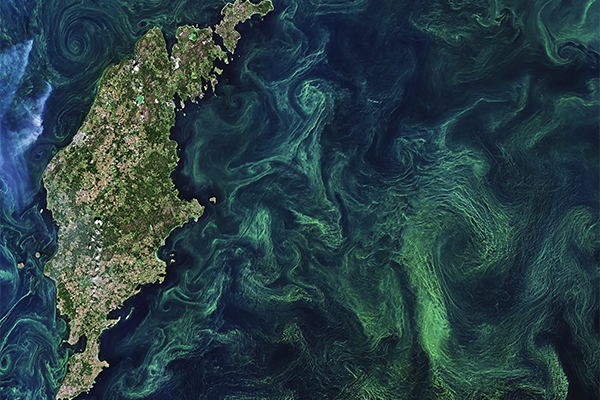
Researchers have completed a study along the West Coast to investigate how the 2014–2016 marine heatwave (known as “The Blob”) impacted the region’s fish, fisheries and fishermen. The scientists documented The Blob’s diverse effects through a coastwide economic synthesis and a series of 10 case studies, finding that many fisheries suffered due to stock declines and shifting ranges. However, even some of the species that fared well caused management challenges.
The study, which was published in Fish and Fisheries, presents an outline for what to prioritize as scientists, fishermen and policymakers chart a path forward.
“Marine heatwaves have really emerged as possibly the greatest immediate climate threat to the oceans,” said senior author Lyall Bellquist, a fisheries scientist at UC San Diego and The Nature Conservancy. They’re already increasing in frequency, intensity and duration, he noted, causing profound impacts on ecosystems and economies, communities and cultures worldwide.
The Blob was the largest marine heatwave on global record and impacted the entire food web between Mexico and Alaska, from plankton to whales. To make sense of such a large disturbance, the team analyzed fishery revenues before, during and after the heatwave, which guided them to the case studies that highlight different responses to the event.
Findings indicate that massive heatwaves like The Blob don’t always match scientific expectations. For example, Pacific sardine populations collapsed before and during The Blob, causing a multi-year federal fishery disaster and closure from California to Washington. Meanwhile, anchovy began to increase during the marine heatwave, and exploded to near-record levels in subsequent years. The scientists said that “surprises like these will become more common and more disruptive, so we need to figure out why we were wrong and what to do about it.”
However, climatic changes can also produce results that seem completely unconnected. For instance, the researchers found a spike in whale entanglements during The Blob.
The study also highlighted that some fisheries will fluctuate as ocean conditions change. The distribution of market squid, usually a warm-water species, shifted toward Oregon during the heatwave, with activity as far north as Kodiak, Alaska. The case studies highlight what actions are needed to prepare for a warmer, more volatile future.
“Marine heatwaves are here with us to stay,” Free said. “Even if we could predict and manage them perfectly, they would still impact fish and fisheries. We need policies that bolster the resilience of fishing communities to those negative impacts that we can’t mitigate.”
Can machine learning using climatic pattern data help predict harmful algal blooms earlier?
Likewise, improving fisheries monitoring will enable early detection of changes and allow decisions to be made faster. Management models should also include climate components, the scientists stated.
“Reactive management approaches that rely solely on historical fisheries analyses will only get us so far,” Bellquist said. “Instead, we need to integrate forecasts of how fisheries might respond to both management decisions and climate change.”
The researchers also recommended easing access to permits so fishermen can target a more diverse portfolio of species. The more permits a fisherman holds, the better they can pivot toward a species doing well. Free and Bellquist spoke highly of exempted fishing permits, which enable fishermen to partner with scientists and legally operate under different rules or with different gear.
“It could allow the fishers to try to solve the problem themselves,” Free said. “The permits could spur innovation to reduce bycatch. One successful example of this was the recent federal approval of deep-set buoy gear, which was co-developed by fishers and scientists to reduce sea turtle bycatch in the swordfish fishery. Improvements like this show what is possible when stakeholders work together.”
The authors are also evaluating fishery insurance as a possible tool for supplementing federal fishery disaster assistance, as none currently exists in the United States. Such programs could help alleviate the impacts of extreme events, and they were recently recommended by NOAA.
Going forward, the researchers are working on step-by-step directions to navigate toward some of their recommendations. For instance, they are developing a computer model to simulate management strategies that prevent climate-driven whale entanglements in the Dungeness crab fishery. Tools to model biotoxins will also guide managers, fishermen and aquaculture growers during harmful algal blooms, which are likely to get worse under climate change.
“We are also identifying fisheries that are good candidates for insurance programs and designing programs that would be effective and affordable for fishermen,” Free said.
Follow the Advocate on Twitter @GSA_Advocate
Now that you've reached the end of the article ...
… please consider supporting GSA’s mission to advance responsible seafood practices through education, advocacy and third-party assurances. The Advocate aims to document the evolution of responsible seafood practices and share the expansive knowledge of our vast network of contributors.
By becoming a Global Seafood Alliance member, you’re ensuring that all of the pre-competitive work we do through member benefits, resources and events can continue. Individual membership costs just $50 a year.
Not a GSA member? Join us.
Author
Tagged With
Related Posts
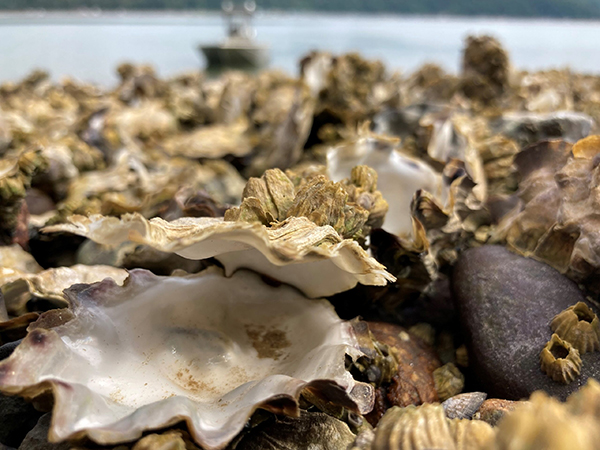
Responsibility
2021 heat wave created ‘perfect storm’ for shellfish die-off
Researchers have produced the first comprehensive report detailing the impacts of the 2021 Pacific Northwest heat wave on shellfish.
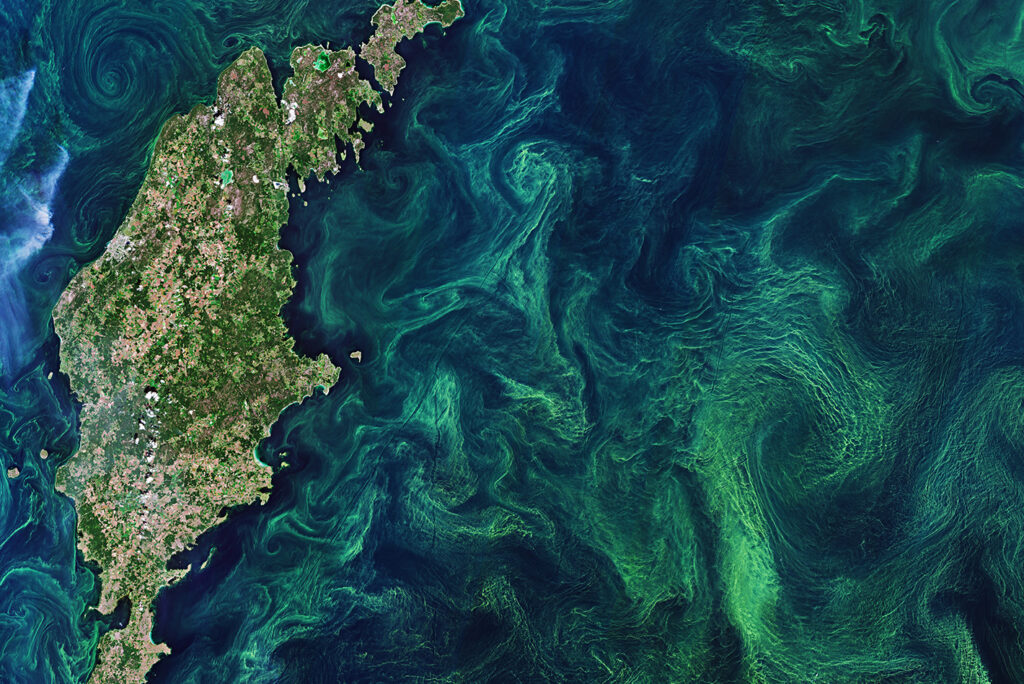
Fisheries
Increasingly frequent and costly, marine heatwaves are testing the resilience of fisheries and aquaculture
Marine heatwaves have already caused severe losses for seafood, but in some cases, the industry may see some benefits from these events.
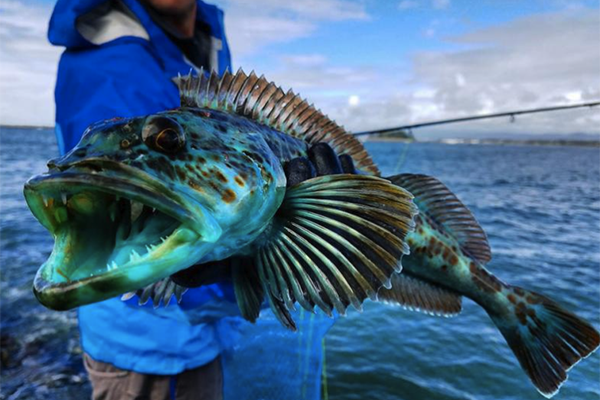
Fisheries
Study: Marine heat waves deep underwater persist longer
A NOAA study finds marine heat waves can occur with little evidence of ocean warming at the surface, which impacts fisheries management.
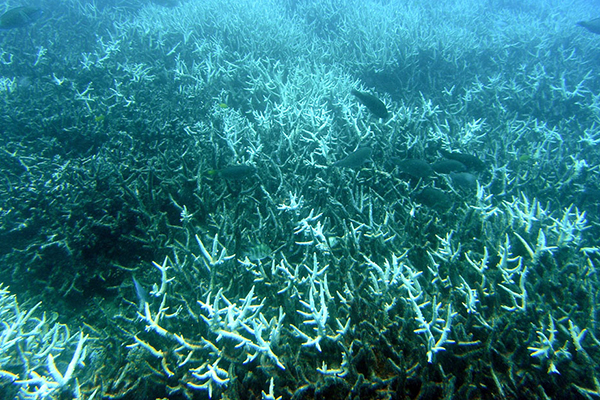
Responsibility
Study: 2021 breaks record for hottest ocean temperature
New research shows the ocean temperature in 2021 was the hottest ever recorded by humans, and the effects of ocean warming are "far-reaching."



